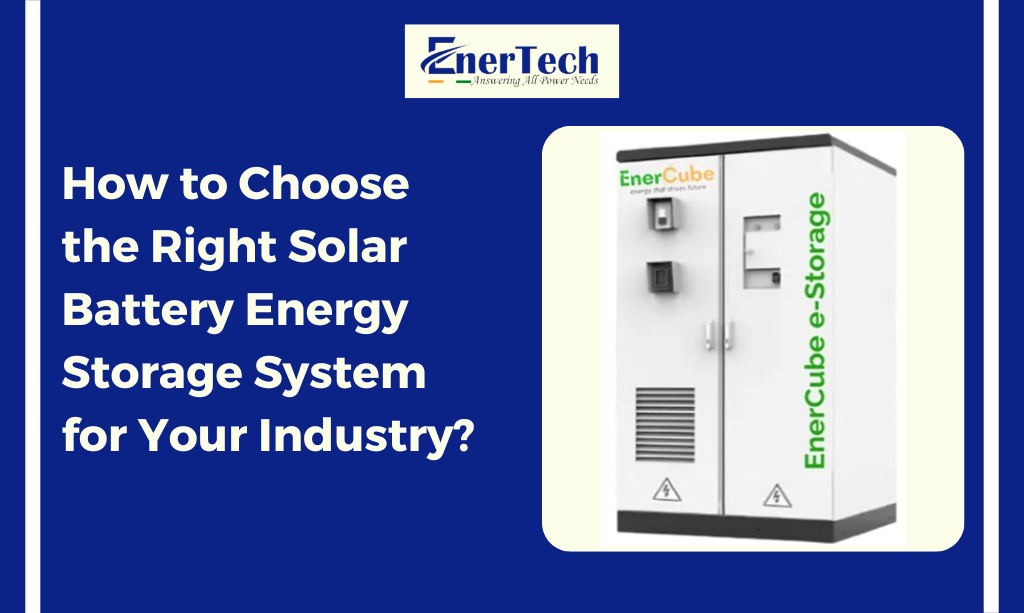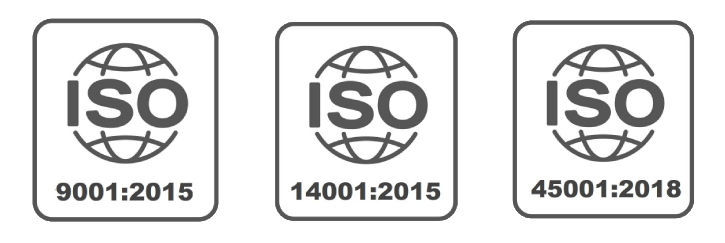Your choice of the solar battery energy storage system proves crucial while achieving energy reliability and optimizing power use. However, making the right choice could be challenging amidst the numerous configurations and battery types available. This is where knowing what to consider before making a choice comes into play. This short guide proves useful in this regard. It provides vital insights into the various factors you must consider while selecting the appropriate solar battery energy storage system.
What is a Solar Battery Energy Storage System?
Solar panels convert solar energy into usable electricity. However, these panels often produce excess energy during optimal conditions. Storage systems store this excessive energy for later use. Thus, during overcast conditions, when solar panels struggle to generate electricity, the stored energy can be used to power appliances, ensuring an uninterrupted energy supply.
Some key components of solar battery energy storage include solar panels, battery storage, inverter, and battery management systems. The system helps increase energy independence, reduce environmental impact and considerable cost savings. Nevertheless, as said earlier, the choice of the system matters. Here’s how to make one.
Request Quote: Battery Energy Storage System- EnerCube
5 Factors to Consider While Choosing a Solar Battery Energy Storage System
Here’s how you can select the right storage system for your needs.
1. Calculate Your Energy Needs
At the outset, analyze your industry’s routine energy usage. Peak consumption hours and daily energy needs will help determine the capacity and size of the battery system. The energy capacity of a battery system signifies the amount of energy it can store. Additionally, you must assess if you need the system for full backup power or to cover up energy demands during peak hours or outages.
Furthermore, evaluate the duration you need the battery to provide power. This is because every industry has unique needs concerning storage duration. We recommend working this out with a reliable solar battery energy storage system supplier in India like us to ensure accurate evaluation and calculation of your unit’s energy needs.
2. Power Rating and Capacity
Power rating refers to the power the battery can deliver at a particular moment. It is measured in kilowatts (kW). You will need a high-power rating battery storage system if your industry requires a lot of electricity in a shorter period. One of the industry examples of battery energy storage system for manufacturing.
In addition, you should check the storage system’s capacity. As indicated earlier, capacity is the amount of electricity the battery can store, measured in kilowatt-hours (kWh). You will need a high-capacity battery should your energy needs be significant.
3. Charging Speed and Round-Trip Efficiency
You will require a fast-charging battery if you are in an industry with short windows of energy availability. Furthermore, you should assess the storage system’s round-trip efficiency, which is the percentage of energy you can use after losses during charging and discharging. Ideally, you must look for a battery energy storage system with a greater round-trip efficiency to curtail energy waste.
4. Battery Technology Used
Solar energy battery energy storage systems comprise various types of batteries. While choosing one, you must check the battery type of your system. This is because each battery type has unique pros and cons. Some common battery types include;
- Lead-Acid: Commercially more viable but low on efficiency and lifespan. Suitable for industries with low energy storage needs.
- Flow Batteries: Large-scale energy storage with long discharge times and longer lifespan. Suitable for heavy industries.
- Lithium-Ion: High energy density, efficiency, and longer cycle life. Works for various types of industries.
- Sodium-Sulfur (NaS): High-temperature ideal for massive storage solutions.
5. Safety
While assessing the battery energy storage efficiency and capacity, you cannot discount its safety. Accordingly, you must consider buying systems with recommended safety features, including overcharge protection, temperature regulation, fire safety, and short-circuit prevention. Additionally, you must check if the battery storage system can sustain your industry’s operational environment, including dust, corrosive conditions, and extreme temperature variations.
Learn More: How Energy Storage Systems Can Save Costs of EV Charging?
Empowering the Industrial World with Efficient Solar Battery Energy Storage Systems
EnerTech’s EnerCube is a BESS (battery energy storage system) that represents rechargeable batteries to store energy from multiple sources and release it whenever needed. It combines advanced technology, a profound sustainability commitment, and superlative performance. Some key features of EnerCube BESS include;
- Renewable energy integration
- Improved grid stability
- Increased scalability
- Blackout protection
- Peak shaving and load shifting
- AC multi-layer protection
- Integrated BMS
- Plug-and-play solution
- Long lifespan and exceptional efficiency
Learn More: How Battery Energy Storage System Can Revolutionize Your Energy Efficiency
EnerCube is the result of EnerTech’s commitment to helping industries be self-reliant in terms of energy and receive uninterrupted power in every situation. Email us at sales@enertechups.com to explore more about our battery energy storage system cost, product and support.
Tags: bess battery energy storage systems, battery energy storage system, solar energy storage system, battery energy storage, battery energy storage solutions, bess battery energy storage, battery energy storage system for business, battery energy storage system for manufacturing, energy storage solutions




